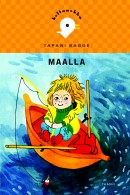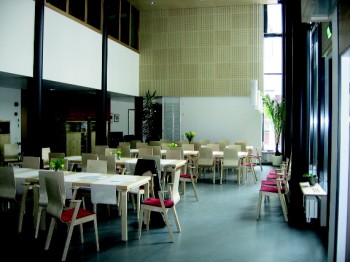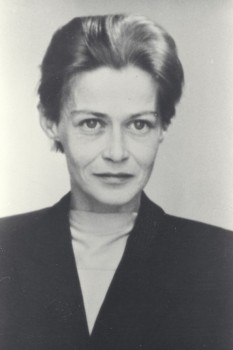Search results for "Sirkka Turkka"
Tutti frutti
20 November 2009 | In the news
 The chair of the jury for the Finlandia Prize for Non-Fiction 2009, Professor Pekka Puska, compared choosing a winner to the dilemma of choosing between oranges and bananas. The jury found that among the entries were at least 20 or 30 books that could have gone on the final shortlist of six titles. More…
The chair of the jury for the Finlandia Prize for Non-Fiction 2009, Professor Pekka Puska, compared choosing a winner to the dilemma of choosing between oranges and bananas. The jury found that among the entries were at least 20 or 30 books that could have gone on the final shortlist of six titles. More…
How to build a Finlandia Prize-winning novel
4 December 2009 | In the news

Antti Hyry
The Finlandia Prize for Fiction 2009, worth €30,000, was awarded to Antti Hyry (born 1931) on 2nd December; his novel about building a stove, Uuni (‘The stove’, Otava), was chosen by the art historian and former director of the Finnish National Gallery, Tuula Arkio, from a shortlist of six. More…
Tapani Bagge: Maalla [In the country]
31 January 2011 | Mini reviews, Reviews
 Maalla
Maalla
[In the country]
Kuvitus [ill. by]: Hannamari Ruohonen
Helsinki: Tammi, 2010. 64 p.
ISBN 978-951-31-4748-8
€9.50, hardback
There have been plenty of books for beginning readers with action-packed plots full of breathtaking twists and turns. Fortunately there are still books that leave room for a more ‘easy does it’ reading style. One of them is this, the sixth title in Tapani Bagge’s series about a girl called Kaisa. Kaisa travels to the countryside with her father and her father’s partner Sirkka. Their journey is overshadowed by the death of Kaisa’s grandmother, and the little girl believes that nothing at her grandma’s place will ever be the same again. Bagge’s extensive work on this material is evident in his spare, finely tuned prose. He portrays the grieving girl’s differing shades of emotion beautifully. Kaisa believes that her grandma has changed into a butterfly following her death. So the butterfly fluttering around in the attic needs to be saved – but this of course has further-reaching consequences…. Hannamari Ruohonen’s black-and-white illustrations provide a lovely depiction of care and protection in the family.
Translated by Ruth Urbom
The house the seniors built
27 November 2009 | Reviews

Yours and mine: the common dining room at Sprint
Maija Dahlström – Sirkka Minkkinen
Loppukiri. Vaihtoehtoista asumista seniori-iässä
[Sprint: alternative living for seniors]
Helsinki: WSOY, 2009. 232 p., ill.
ISBN 978-9510-4322-9
€ 32.90, paperback
‘Your elderly mother just told you she fell in the bathroom last night at 4 a.m. Now what?’ advertises the Visiting Nurse Service of New York in the New York Times. Aging people and their desire to live in their own homes is a pressing question around the world. People feel concern over their own living arrangements and those of their loved ones. Living arrangements somewhere between being in one’s own home or in a care facility are sought by many, but there are few of these options available. More…
Poems
31 December 1986 | Archives online, Fiction, poetry
Introduction by Kai Laitinen
Evening Mood
It’s widening:
an evening like a sigh –
languidly spreading across the land.
The tree’s unclothing
its branches of their colours, darkening.
As if something somewhere
were ringing and ringing –
a song straying like an orphan.
The words seem
something I’ve heard:
‘only a shadow –
only a shadow of a dream’
It’s slipping away. It’s dwindling.
Everything – everything – I’ve been given
I’ll give away. More…


